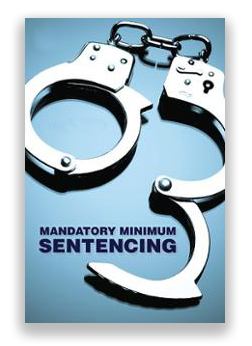We post news and comment on federal criminal justice issues, focused primarily on trial and post-conviction matters, legislative initiatives, and sentencing issues.

LAST WEEK IN WASHINGTON
 The news website Axios reported last week that Sens. Richard Durbin (D-Illinois) and Charles Grassley (R-Iowa) – the Senate’s criminal-justice reform “odd couple” – “are working to win Senate passage of a big criminal justice reform package this Congress.”
The news website Axios reported last week that Sens. Richard Durbin (D-Illinois) and Charles Grassley (R-Iowa) – the Senate’s criminal-justice reform “odd couple” – “are working to win Senate passage of a big criminal justice reform package this Congress.”
Axios cited approval of three bills by the Senate Judiciary Committee, the COVID-19 Safer Detention Act, the First Step Implementation Act, and the Prohibiting Use of Acquitted Conduct Act as being “three measures, Grassley told Axios, they ‘hope to package along with potentially other proposals to pass the Senate sometime this Congress’.” Durbin separately told Axios in his own statement that he’s “committed to bringing these bills to the Senate floor this Congress.”
Axios predicts the final package also may include a measure for CARES Act confinees who otherwise may be forced to return to prison, a Republican Senate staffer told Axios, as well as the EQUAL Act. One challenge will be the crime spike, Axios said, which has the potential of sapping support from senators afraid of being branded soft on crime.
I like Axios, which is a pretty even-handed service, albeit more of a news aggregator than a news reporter. (Nothing wrong with news aggregators – LISA is largely one itself). But because it’s an aggregator, I am not sure whether Axios’s report represents something new, or is just a survey of what we already know.
 In other developments, a coalition of five civil rights groups last week urged the Dept of Justice to reconsider its position on sending back to prison thousands of federal inmates transferred to home confinement during the pandemic, offering a legal analysis they believe would justify keeping them out from behind bars.
In other developments, a coalition of five civil rights groups last week urged the Dept of Justice to reconsider its position on sending back to prison thousands of federal inmates transferred to home confinement during the pandemic, offering a legal analysis they believe would justify keeping them out from behind bars.
They argued that the Trump-era legal memo that concluded BOP is required by law to revoke home confinement for those transferred during the pandemic as soon as the emergency period is over, contending the Office of Legal Counsel memo is based on a flawed interpretation of the CARES Act.
Update: Yesterday, Senators Richard Durbin (D-Illinois) and Cory Booker (D-New Jersey) wrote to President Biden, urging him to act on keeping CARES Act home confinees at home. They suggested, in part, that the Bureau of Prisons could “provide relief for certain individuals through prerelease home confinement, under 18 USC § 3624(c)(2), and the Elderly Home Detention Pilot Program, pursuant to 34 USC § 6054l(g). For those who do not qualify for those provisions, BOP can recommend, and DOJ should support, compassionate release pursuant to 18 USC 3582(c)(l)(A). Compassionate release is authorized whenever extraordinary and compelling reasons warrant a sentence reduction, and the once-in-a-century global pandemic that led to these home confinement placements certainly constitutes such an extraordinary and compelling circumstance.”
So far, the President has resisted by inaction such calls to address the looming home confinement crisis.
Axios, Senate plans barrage on crime (August 1, 2021)
The Hill, Civil rights groups offer DOJ legal strategy on keeping inmates home after pandemic (August 4, 2021)
Letter to Dawn E. Johnsen, Acting Asst Attorney General (August 4, 2021)
The Hill, Top Senate Democrats urge Biden to take immediate action on home confinement program (August 12, 2021)
Letter to President Biden from Sens. Durbin and Booker (August 12, 2021)
– Thomas L. Root












